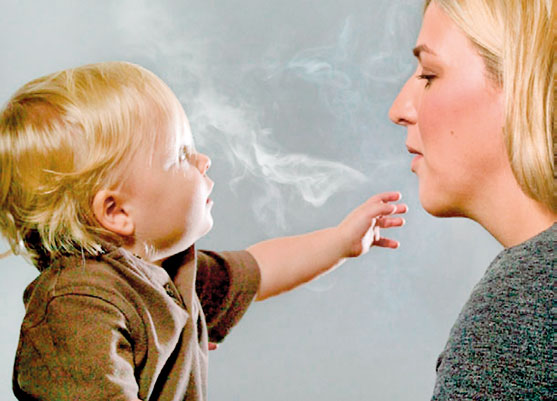 How the industries of tobacco and infant milk formula target the human race
How the industries of tobacco and infant milk formula target the human race
Mammals are the most advanced class of life known to us. Characteristically, they have hair, three little bones in their middle ear and show maternal care with milk production. This care for the young is quite fascinating. We humans are mammals and we care for our young. Or so we believe.
Let us explore ourselves, our kids and the care we show towards our kids. Humans are the most advanced mammals in the world. Let us try to be as objective as possible, amongst the claims that motherhood is sacred and pure.
"By age six nearly as many children could correctly respond that “Joe Camel” was associated with cigarettes, as could respond that the Disney Channel logo was associated with Mickey Mouse"

Whatever the philosophy of mother’s care and its complexity and sanctity, we find that there are few less complex steps that blend together which form it - breast milk starting to ooze with the birth of the baby; a quick bond materialising between the mother and the new born-baby, a gradual communication developing among mother/ father and the baby, mother/ father/ baby unit functioning as the basic unit in daily life and so on.
This is the basis of human lifestyle, and if you remove the father from the equation, it is the basis for almost all mammals. Birds come close to it, but not quite. Don’t we feel some evolutional pride? After all, this has been inherited through millennia by us, which is now felt in our bones.
Unlike most lower animals, we produce only a few offspring. With our great parental care, we have a high chance of helping them to mature and become healthy, happy adults one day. This is a contrasting story compared to the turtles or spiders, who have to produce a large number of offspring, just to ensure that a few of them survive into adulthood.
Now, let us consider the instance where the mother is unable to breast feed the child, for example when a mother dies during delivery.
With no breast milk the human child, the mammalian offspring, is sure to starve and die. And that is what happens in every other mammalian. However the human found out that the breast milk could be substituted by other mammalian milk, most commonly cow’s milk. Hence thousands of human babies began to survive despite non-availability of breast milk to feed them, thanks to these substitutes.
Later, these milk substitutes became an industry - INFANT MILK FORMULA. The industry provided affordable, safe, healthy breast milk substitution - another remarkable step, of which we can feel a certain amount of pride, as the human race.
In 1974, an organisation called War on Want published a report penned by Mike Muller titled “The baby killer: A War on Want investigation into the promotion and sale of powdered, baby milks in the Third World.” This was a landmark revelation of what the powdered-milk industry was actually doing in Africa and South America.
The sales representatives of the company, disguised as nurses, visited remote African communities and lured mothers to give up breast feeding and start formula feeding. This resulted in millions of deaths of babies and a generation of malnutrition and disease.
The report reveals: “The baby food industry stands accused of promoting their products in communities which cannot use them properly; of using advertising, sales girls dressed in nurses uniforms, give-away samples and free gift gimmicks that persuade mothers to give up breast feeding.”
So much for the mammalian pride of looking after our offspring!
"It seems that with no signs of guilt or discomfort, we have managed to kill thousands of babies and persuade millions of young people to take up the fatal smoking habit. Perhaps not something to feel pride in, as humans or as mammalians"
Now, let us explore another animal phenomenon: The story of Joe Camel.
In 1988 in the United States, R.J. Reynolds, one of the biggest tobacco companies in the world, introduced the Joe Camel cartoon character as part of an extensive campaign to celebrate the 75th anniversary of the Camel brand and seize a larger section of the market of children and young adults.
Joe Camel appeared in magazines, billboards, other advertisements and merchandise such as hats and t-shirts.
In 1991, the Journal of the American Medical Association published a study showing that by age six nearly as many children could correctly respond that “Joe Camel” was associated with cigarettes, as could respond that the Disney Channel logo was associated with Mickey Mouse. R. J. Reynolds quickly denied that they targeted children.
In 1998, after the Master Settlement Agreement, R. J. Reynolds had to give researchers access to their internal documents. One such document, dated 1973, revealed how an R.J. Reynolds official suggested the creation of a character such as Joe Camel: “In view of the need to reverse the preference for Marlboros among younger smokers, I wonder whether comic strip-type copy might get a much higher readership among younger people than any other type of copy.”
A document written in 1976, 12 years before launch off, the Joe Camel campaign to target the youth urged: “Evidence is now available to indicate that the 14 to18-year-old group was an increasing segment of the smoking population. RJR must soon establish a successful new brand in this market if our position in the industry is to be maintained over the long term.”
And another communication read, “To ensure increased and longer-term growth for Camel Filter, the brand must increase its share penetration among the 14-24 age group which have a new set of more liberal values and which represent tomorrow’s cigarette business.”
And then in the summer of 1988, the Joe Camel campaign was stylishly launched. At that time teenage smokers accounted for USD 6 million of total Camel cigarette sales. Six ‘Joe Camel’ years later, the figure rose to USD 476 million.
It seems that with no signs of guilt or discomfort, we have managed to kill thousands of babies and persuade millions of young people to take up the fatal smoking habit. Perhaps not something to feel pride in, as humans or as mammalians.
Now the uncomfortable thought one might have is, ‘do we actually have genuine mammalian-type parental care? Or is it just a farce?’ May be it is just a farce!
We do not care about the welfare of our kids. Let them be fed with infant formula and exposed to Joe Camel. And, the question – is parental care sacred?
The other interesting alternative view could be: ‘the corporate world has hijacked our instinctive parental care attribute, and has mercilessly used Joe Camel and Sales Representatives dressed up as nurses to deceive us and our kids.”
Perhaps we need a little ‘critical thinking’ here to sort out which proposition is closer to reality. A little bit of common sense.
Common sense is a distinctive human attribute. An attribute we can feel some pride in having.
However, common sense isn’t common...
 How the industries of tobacco and infant milk formula target the human race
How the industries of tobacco and infant milk formula target the human race